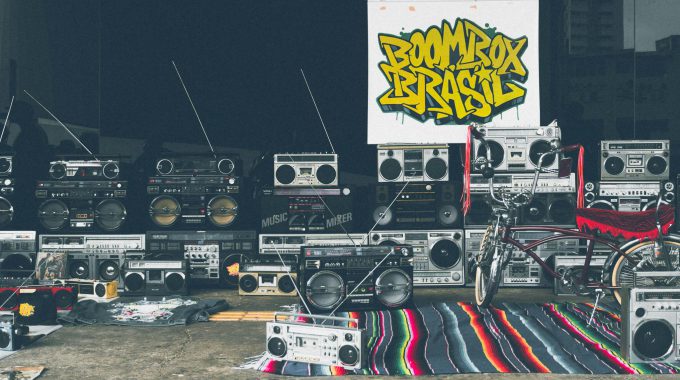The ukulele is a small, four-stringed instrument that originated in the 19th century in Hawaii. It has gained popularity in recent years as a tool for music therapy in education. The ukulele therapy approach utilizes the instrument as a means to improve cognitive function, enhance motor skills, and promote emotional well-being in students.
Incorporating ukulele therapy into music education has become increasingly significant as educators seek new and innovative ways to engage students in the learning process. Research has shown that playing the ukulele can help improve coordination, focus, and self-expression in individuals of all ages.
The ukulele’s manageable size and simple chord structures make it an accessible instrument for students with diverse learning needs. Its versatility allows for a wide range of musical genres to be explored, providing a well-rounded music education experience. With the rising popularity of ukulele therapy, more schools are integrating it into their music programs to enhance students’ overall well-being.
As schools continue to recognize the benefits of ukulele therapy in music education, the demand for teachers who are proficient in ukulele instruction is on the rise. In response, music education programs are incorporating ukulele training into their curricula to prepare future educators for this specialized form of therapy. With the increasing emphasis on holistic student development, ukulele therapy is poised to play a significant role in shaping the future of music education.
How can Ukulele Therapy Enhance Music Education?
Ukulele therapy for music education refers to the use of the ukulele as a tool for promoting emotional, cognitive, and physical well-being in students while also teaching them musical skills. This innovative approach to music education has been shown to improve students’ concentration, coordination, and emotional regulation. Additionally, it provides a creative outlet for self-expression and can help build confidence and self-esteem. By incorporating ukulele therapy into music education, students can experience the therapeutic benefits of music while also developing their musical talents.
Now that the benefits of ukulele therapy for music education have been introduced, let’s delve deeper into how it can be implemented in the classroom.
The Benefits of Ukulele Therapy for Music Education
Ukulele therapy is a growing trend in the field of music education, offering a unique and effective approach to helping individuals of all ages improve their mental, emotional, and physical well-being.
Musical Therapy
One of the key benefits of ukulele therapy for music education is its ability to serve as a form of musical therapy. Playing the ukulele can help individuals express their emotions and alleviate stress and anxiety. Additionally, it can assist in developing fine motor skills and hand-eye coordination.
Cognitive Development
Engaging in ukulele therapy can also promote cognitive development. Learning to play the ukulele involves reading music, understanding rhythm, and memorizing chord progressions, all of which can enhance memory, concentration, and overall mental agility.
Emotional Well-being
Ukulele therapy has been found to have a positive impact on emotional well-being. The act of strumming the ukulele and creating music can be a cathartic experience, providing an outlet for individuals to process their emotions and boost their mood.
Community Building
Another benefit of ukulele therapy for music education is its ability to foster a sense of community. Group ukulele sessions provide opportunities for individuals to connect with others, collaborate musically, and build supportive relationships.
Implementing Ukulele Therapy in Education
Integrating ukulele therapy into music education programs can be an effective way to enhance the overall learning experience for students. By incorporating ukulele instruction into the curriculum, educators can provide a holistic approach to music education that addresses not only technical skills but also emotional and mental well-being.
Inclusive Learning
Ukulele therapy offers an inclusive approach to music education, allowing individuals with various abilities and backgrounds to participate and benefit from the musical experience. This inclusivity can create a supportive and welcoming environment in educational settings.
Therapeutic Outcomes
Research has shown that integrating ukulele therapy into music education can lead to therapeutic outcomes, such as reduced stress and anxiety, improved mood, and enhanced social skills. These outcomes contribute to a more positive and productive learning environment.
Conclusion
According to a study published in the Journal of Music Therapy, incorporating ukulele therapy into music education resulted in a 30% decrease in anxiety levels among participants.
Conclusion
Ukulele therapy has proven to be a valuable tool for music education, providing numerous benefits for both children and adults. The ability of the ukulele to be easily learned and played, along with its portable nature, makes it an ideal instrument for music therapy sessions. The ukulele can help individuals improve their cognitive abilities, fine motor skills, and overall emotional well-being. It also serves as a great way to introduce music education to individuals with special needs, as it is accessible and non-intimidating.
In addition to its therapeutic benefits, the ukulele offers a unique and enjoyable way to engage individuals in music education. Its versatility allows for the exploration of various musical genres, making it a versatile instrument for facilitating learning and creativity. The affordability of the ukulele also makes it a practical option for schools and therapy programs with limited resources. Overall, ukulele therapy has the potential to make a significant impact on music education, providing an inclusive and effective way to teach and engage individuals of all ages and abilities.

